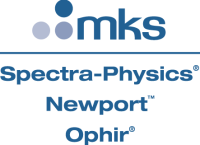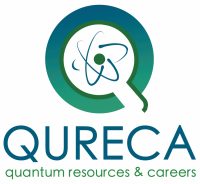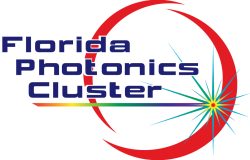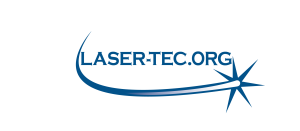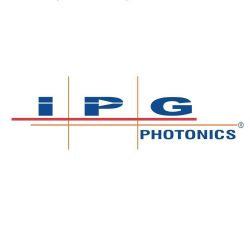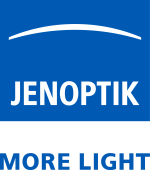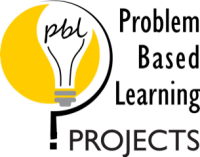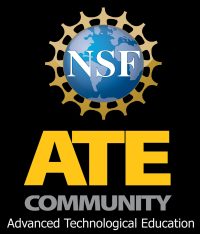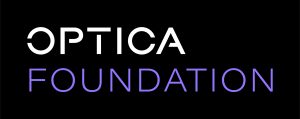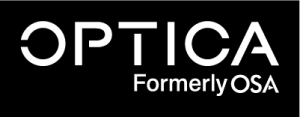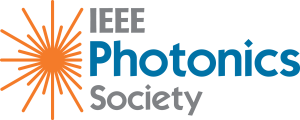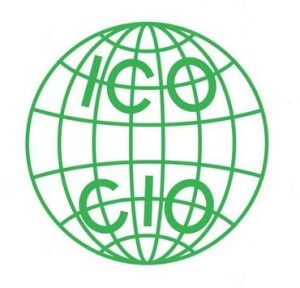WORKSHOPS
Workshop Activities
5/16/2023 09:00 – 10:30
Optiwave’s Photonics and Instrument Software is The Path to Virtual and Remote Teaching Alternative Approach
Ahmad Atieh
Optiwave
Description:
Attention, Professors, and Lecturers! Optiwave’s comprehensive software packages offer limitless possibilities for designing, simulating and optimizing photonics components, optical links, communication systems, and networks. Our software provides unparalleled flexibility and control, allowing you to create virtual projects that mimic real-world designs and setups, perfect for teaching and characterization.
Using our software in your teaching courses, you can provide your students with hands-on experience representing actual modules, subsystems, or systems without requiring access to expensive lab equipment. Students can vary the parameters of devices, investigate the physical characteristics of devices and subsystems in-depth, and gain insight that would be difficult or impossible to achieve through physical experimentation alone.
OptiInstrument software enables remote control of lab equipment, making it easier than ever to operate experiments, collect data, and process results. OptiInstrument communicates with instruments through various protocols, including TCP/IP, USB, RS-232, RS-485, and GBIP ports. Whether using OptiInstrument’s intuitive GUI sequence builder or writing your own commands in Python, you can achieve precise control over every aspect of your experiments.
Our workshop is specifically tailored to professors and lecturers looking to enhance their understanding of photonics and optical system design and find new ways to enrich their teaching courses. Join us to explore the software’s features, gain hands-on experience with virtual projects, and learn how to integrate OptiInstrument with other packages.
Don’t miss this opportunity to provide your students with a cutting-edge education that prepares them for success in the photonics and optical system design industries. Register for our workshop today and take the first step toward unlocking the full potential of your lab and teaching courses!
Learning Outcomes:
Our workshop is specifically tailored to professors and lecturers looking to enhance their understanding of photonics and optical system design and find new ways to enrich their teaching courses. Join us to explore the software’s features, gain hands-on experience with virtual projects, and learn how to integrate OptiInstrument with other packages.
5/16/2023 09:00 – 10:30
How to prepare your STEM PhDs for private sector careers
David Giltner
TurningScience, LLC
Description:
PhD scientists and engineers provide valuable skills to the private sector, and more and more educational institutions are realizing that most of their graduates will end up pursuing careers in industry rather than in academic research. But how does an advisor prepare a PhD candidate for an industry career when they may have little or no industry experience themselves?
There is a lot of focus on transferrable skills in education, and this is important. But it’s only a start. Industry managers tell us that the biggest problems they see with new STEM graduates making a successful transition is not about having the right skills. It’s about thinking and working habits.
So the question is, “Can an advisor develop these important habits in their STEM PhD candidates in an academic research environment?” Absolutely. This workshop will give you several practical steps you can take to help your students prepare for the environment most of them will enter.
Skills are only a starting point. Habits matter! Learn what habits are critical and how to develop them in your students.
Learning Outcomes:
The workshop will each participants valuable tactics for training their STEM PhDs for private sector careers in an academic research environment. Specific skills/techniques they will learn:
- Five important ways that the private sector is different than academic research
- Five critical working habits that STEM graduates who are successful in their private sector careers learn quickly
- The answer to the question: Does a scientist or engineer need to focus on either industry or academia as a career path? (Spoiler alert: Absolutely not!)
- How influential scientists utilize both the research mindset and the development mindset
- How to encourage the kind of teamwork that is essential part of industry teams
- Time management techniques used by successful industry teams
5/16/2023 13:00 – 14:45
10 outreach activities can be conducted by the members of OSA student chapters
VT Gopakumar
Adi Shankara Institute of Engineering and Technology,Kaladi, Kerala, India
Description:
10 outreach activities include:
- Digital Literacy
- Literacy in disaster management and rescue operations
- Literacy on Free online courses
- Legal Literacy
- Medical Literacy
- Literacy on Moral and ethical values to be practiced.
- Literacy on Global warming and Climate changes
- Literacy on telecast the talent/s through online
- Volunteering for the old age people
- Literacy in Yoga and Meditation
Learning Outcomes:
Outreach activities are very important for societal development. If a country is said to be progressing technological development should reach the poorest of the poor. The OSA can take a lead role in the same. In my one and half hour talk (with PPTs) I deliver 10 outreach activities that can be taken up by the student members to uplift the society, especially the people located at sub rural, rural, and remote inaccessible areas.
5/16/2023 14:00 – 17:00
Iluminando el Futuro; STEM outreach initiative. The start of a new generation of science communicators in Latin America
Angeles Camacho Rosales
University of Southampton
Description:
The workshop will have three sections:
- Introduction to Iluminando el Futuro
- Challenges faced by STEM ambassadors in Latin America (Hands-on Activity)
- Review of the STEM ambassadors’ work
During the introductory section, we will share highlights about the formation of the Iluminando el Futuro team including its vital STEM ambassadors.
The hands-on activity will give the attendees an understanding of the STEM ambassador role. Attendees will use the materials provided to design an outreach activity to explain a scientific concept related to photonics. In addition, each group will be asked to consider in the design of the activity a physical impediment based on the social realities of developing countries. A competition will take place to encourage active participation and collaboration.
Finally, there will be an interactive feedback session, where they will share their experience in designing their outreach activities and then they will have the opportunity to hear from STEM ambassadors about their approach and how to measure impact.
The workshop will encourage attendees to create learning spaces in their local communities to share their STEM knowledge and become effective agents of change by enabling their communities to learn about science and communicate its positive societal impact. Iluminando el Futuro is a STEM Outreach Initiative that can be extended to other global regions. We would like to use this opportunity to encourage attendees to lead similar initiatives in their communities by applying and improving on the Iluminando el Futuro model.
Learning Outcomes:
Iluminando el Futuro is a STEM outreach initiative supported by the IEEE Photonics Society since its beginning. It seeks to train a new generation of science communicators in Latin America, who will work with their local communities to share their scientific knowledge through the development of STEM outreach activities.
The objectives of the workshop are:
- To share lessons learned from the experience of creating a new outreach initiative in Latin America, focusing on the best practices that led this effort to become a reality
- To encourage attendees to create learning spaces where they can support their community, be active agents of change, and enable members of their community to make positive impacts
- To highlight the achievements of the STEM ambassadors with their communities
5/16/2023 15:15 – 17:00
Simulations and Games for Photonic Integrated Circuit (PIC) Design and Manufacturing
Erik Verlage
MIT
Description:
A three-year study at MIT has identified key student misconceptions on the topic of photonic integrated circuits and dielectric waveguides. Guided by this research, the Virtual Manufacturing Lab at MIT has created novel simulations which allow students to visualize waveguide modes and mode superposition. VM-Lab has also created a library of 3D desktop equipment training simulations, and interactive learning games which introduce students to the application areas of integrated photonics, including on-chip chemical/biological sensing and hyperscale data centers.
This workshop will train photonics instructors to use digital visualization tools, 3D desktop simulations, and educational web games to teach integrated photonics and fiber optics fundamentals, packaging, and applications.
Topics include:
Photonic Integrated Circuit Component Simulations (1 hour)
- On-Chip Dielectric Waveguide Fundamentals
- Multimode Interferometer (MMI)
- Y-Junction Splitter/Combiner
- Mach-Zehnder Interferometer (MZI)
- Directional Coupler
- Ring Resonator
Tool-Training 3D Desktop Simulations (1 hour)
- Fiber Manufacturing: Fiber Lathe & Fiber Draw Tower
- Microelectronics Packaging: Die Bonder & Die Saw
- Photonics Packaging: Fiber-to-Chip Coupling
Photonics Learning Web Games (1 hour)
- Chemical and Biological Sensing Game, “eIlluminator”
- Historical Datacenter Game, “Databytes, Inc.”
Most digital simulations covered in this workshop will be available for free on the AIM Photonics website (https://www.aimphotonics.com/simulation-library) and MIT’s new online learning platform. This work was funded by the Office of Naval Research through the Manufacturing Engineering Education Program (MEEP).
Learning Outcomes:
This will be a hands-on workshop that requires all participants to bring a laptop computer with WiFi access to load the web simulations.
Examples of these simulations can be found at the following link: https://www.aimphotonics.com/simulation-library
Workshop objectives:
- Familiarize photonics instructors from all backgrounds with the basics of photonic integrated circuit (PIC) design, with a focus on the fundamentals of PIC components
- Introduce attendees to the free MIT library of photonics simulations and learning games
- Introduce attendees to examples of MIT’s VR and 3D Desktop equipment training simulations
- Emphasize the need to move students beyond a ray optics understanding of dielectric waveguides, towards a more comprehensive modal analysis perspective, and how this can be accomplished using digital visualizations
- Highlight common student misconceptions around dielectric waveguiding and the behavior of on-chip devices
- Provide guidance for incorporating digital content in standard classroom instruction, including curricular examples from MIT’s undergraduate/graduate courses and technician training programs
- Distribute worksheets with exercises and leading questions which are complementary to the library of simulations and games
5/17/2023 09:00 – 10:30
Introduction to Active Learning in Optics and Photonics (ALOP)
David Sokoloff
University of Oregon
Description:
Active Learning in Optics and Photonics (ALOP) is a teacher training program designed to strengthen the introductory physics learning environment at the secondary and university levels, especially in developing countries. It was developed by UNESCO and is currently sponsored by SPIE and ICTP. A full 5-day, in-person, intensive, hands-on-minds-on ALOP workshop updates participants on introductory optics and photonics and introduces them to active learning strategies that have been demonstrated to be more effective than traditional instruction. Full, in-person ALOPs remain suspended because of the pandemic. This very short version is offered as an introduction to the strategies employed in ALOP. Participants will actively experience sample activities from some of the five ALOP modules that they can use in their introductory courses. These are characterized by their use of predictions and small and large group discussions, and inexpensive equipment and supplies. They will also receive an electronic version of the entire ALOP Teacher Training Manual including many more activities. More information on ALOP can be found at: https://pages.uoregon.edu/sokoloff/ALOPwebpage.html
Learning Outcomes:
- Introduce participants to the active learning pedagogy of ALOP.
- Provide sample active learning activities that participants can use with their students.
- Describe the features of ALOP workshops.
- Provide access to the ALOP Teacher Training Manual.
5/17/2023 09:00 – 10:30
Discover the Qureka! Box: An educational tool for hands-on Quantum Computing
Araceli Venegas-Gomez
QURECA
Description:
QURECA proposes to organise a workshop to present the Qureka! Box, an educational tool with a unique methodology for teaching the core concepts of quantum computing. The workshop is intended for educators and professionals who will have the opportunity to participate in different hands-on activities that will help their students grasp the fundamental principles of quantum computing. The first activity showcases a QbitBox, a dual-colored sphere placed in a box, which is used to explain the behaviour of a qubit and quantum states. Participants will use the QbitBox to understand the concepts of spin, superposition, states, and uncertainty principle. The second activity integrates a 3D Bloch Sphere, which is used to visualize quantum states and their transformations after applying gates. Participants will use this sphere to physically manipulate and understand the different quantum states and how they are transformed when applying quantum gates. The third activity is a card game called COMPUCARD, which is designed to demonstrate the differences in computation time between quantum and classical computers. In this activity, participants will be divided into two teams, each team will complete a computational task simulating a classical and a quantum computer and their computation times compared. This workshop intends to demonstrate that quantum computing, given the correct tools and a sound methodology, can be made simple for all the learners who want to enter the ever-growing field of quantum computing.
Learning Outcomes:
- Introduce a unique methodology to teach quantum computing.
- Demonstrate quantum computing concepts through hands-on, interactive, game-based learning activities.
- Provide a proven step by step process to lead the students into quantum computing.
- Understand the use advantage of using Montessori-like materials directed to learning quantum computing concepts.
- Enhance the teaching experience when combining with other type of experiments.
- Empower the educators to explore the field of quantum computing.
5/17/2023 11:00 – 15:15
Photonics Explorer Kit workshop
Astghik Chalyan
Vrije Universiteit Brussel
Description:
The Photonics Explorer Kit (PEK) workshop aims to provide participants/teachers with an overview of the content and context of the kit and the principles of inquiry-based learning on which the material is based. In particular, eight modules will be explained, and two modules will be performed in detail with the accompanying didactics. PEK has over 120 components inside one box and ten pieces from each component. It is possible to do the workshop with 30 people by forming small teams of 3 people. All the components will be discussed and explained how and with which module can be used.
Over 3600 PEKs are distributed and used by different audiences, from school children to science days or PhD training during outreach events or workshops.
Participants will do some experiments by themselves and get inspired to use them during their events.
Learning Outcomes:
The workshop is dedicated to the educational material, Photonics Explorer Kit (PEK).
Attendees of the workshop will be provided:
- overview of the content and components of PEK
- curriculum development and improvement tips in optics and photonics
- Inquiry-based learning approach and hands-on training in the classroom
- learn about 8 different experimental modules of PEK about optics and photonics
- perform some of the most liked experiments
- tips for the teacher’s training
- possible activities with PEK for International Day of Light (IDL) activities and events
5/18/2023 09:00 – 10:30
Constructing High Quality Multiple Choice Questions: Introducing the Item Writing Flaws Evaluation Instrument
Christopher Randles
University of Central Florida
Description:
The workshop is divided into four broad sections:
The first introduces the concept of construct irrelevant variance (CIV) which are features of a question that can change the questions performance independent of the content being assessed. Specifically, the introduction of item writing flaws that can both inflate and deflate question performance when implemented on an exam. The workshop will start with a presentation outlining specific item writing flaws and the reason why the flaws are bad practice.
Secondly, once attendees have an understanding of item writing flaws, they will be asked to evaluate a selection of multiple-choice questions (either questions they use on their own exams, or examples that we have provided) using the item writing flaws evaluation instrument (IWFEI). For this activity attendees can work either individually or in pairs depending on their confidence using the evaluation instrument.
Lastly once attendees have identified item writing flaws within their multiple-choice questions, attendees will be asked to re-construct the multiple-choice question so that the flaws are removed but the same concepts are being assessed.
To close the session, we will ask attendees to share the original question they had evaluated and then provide the alternative way they wrote the multiple-choice questions with the other attendees.
This instrument has applicability for applications in concept inventories, diagnostic metrics, course assessments and research probes.
Learning Outcomes:
- To familiarize individuals with the item writing flaws that can be present in multiple-choice questions that reduce item validity
- To introduce an instrument (IWFEI) that can help instructors to evaluate their own multiple-choice questions
- To train instructors to use the IWFEI to evaluate multiple-choice questions.
- To provide opportunities for instructors to evaluate their own multiple-choice questions
- To provide opportunities for instructors to construct a test item that removes item writing flaws from their question.
5/18/2023 09:00 – 12:00
Problem-Based Learning: Engaging Students in Real-World Problem Solving in Photonics
Nicholas Massa
Springfield Technical Community College
Description:
Can students learn content material, structured problem-solving, and teamwork all at the same time? Problem-Based Learning (PBL) is designed to do just that by engaging students in authentic real-world problems while supporting their problem-solving skills. Developed for use in medical school education in the 1970s, PBL is increasingly being used in business, law, and STEM education as a student-centered approach to teaching and learning. Studies show that PBL leads to deeper learning, increased motivation, and better retention of material. In this workshop, you’ll learn about PBL and how the New England Board of Higher Education’s PBL “Challenges” have been implemented in classrooms and extracurricular activities. You will collaborate with other educators to solve a PBL Challenge to experience firsthand how PBL can enhance your students’ content knowledge, problem-solving and critical thinking skills, and their ability to work in teams.
Learning Outcomes:
This course will enable you to:
- Incorporate problem-based learning into the classroom or informal education settings
- Experience problem-based learning firsthand using the online multimedia PBL Challenges developed by the PBL Projects of the New England Board of Higher Education (NEBHE)
- Explore how the online multimedia PBL Challenges can be used in the classroom or informal education settings
- Learn how to create your own PBL Challenges (problem-based case studies)
- Access PBL and related photonics curriculum materials on NEBHE’s PBL Projects website
5/18/2023 11:00 – 12:00
Industry Collaboration – Excellent career training for your students
David Giltner
TurningScience, LLC
Description:
There has been a lot of discussion in the educational community about how to prepare STEM students for the private sector, since most will end up with a career in industry.
But training for industry careers is hard to accommodate in an academic environment where science and engineering degrees already have a fixed curriculum. There is often little room to add new courses to bring in private sector topics, and there are often few faculty with the private sector experience to teach such courses.
Therefore, many universities are encouraging their researchers to build private sector collaborations as a preferred way of introducing students to industry. This workshop, presented by a 25-year industry veteran, will present the key concepts behind collaborating with the private sector: how does one connect with industry, what might those collaborations look like, and specifically how does it help PhD candidates and postdocs?
Learning Outcomes:
This workshop will introduce the participants to the following aspects of building successful industry collaborations:
- What are companies looking for in an academic collaborator?
- How does a researcher identify potential collaborators?
- How does a research group integrate fundamental and applied research into the same environment?
- How is intellectual property handled effectively?
- How does an academic researcher position their research group as a valuable problem solver for the private sector?

